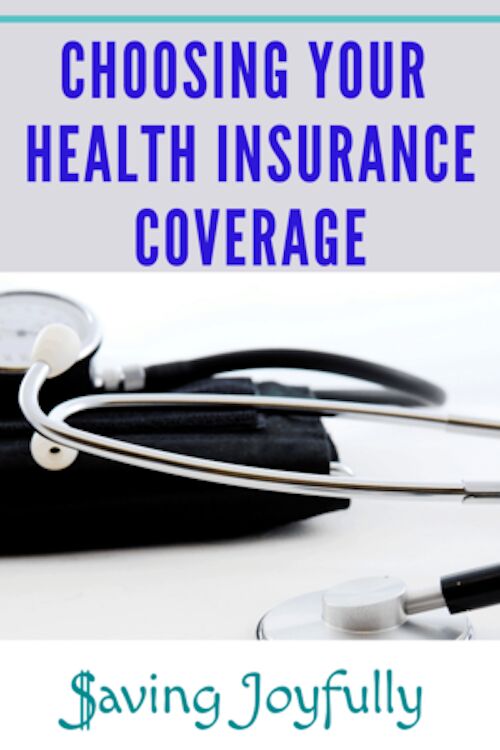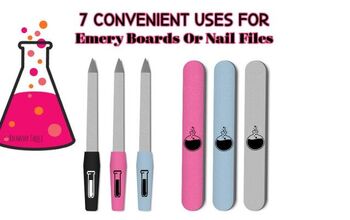HEALTH INSURANCE - THINGS TO CONSIDER WHEN CHOOSING YOUR COVERAGE

Health insurance choosing the right plan can be a huge challenge every year. I have worked in medical billing and dealt with insurance companies for many years daily. Despite knowing the industry and dealing with insurance companies, I still struggle with choosing my coverage. It is not black and white and the plans often change drastically from year to year. So how can you know the best coverage to choose for you and your family?
Health insurance choosing the right plan
So how can you know that you are choosing the best insurance plans for your healthcare needs? If only you could understand the basics of selecting your health plan so it might not be as stressful. Well, the truth is you can understand the basics and make a more informed decision this year by just learning some simple facts.
Health insurance choosing the right plan during open enrollment
Open enrollment is already here for me as it is for most of you. Working in medical billing, I am passionate about helping others understand every day. I hate seeing the devastating costs associated with a lack of knowledge or planning. Many people simply do not know enough about their Insurance coverage or what is the best plan for them. So today I am hoping to clear some of the confusion surrounding these decisions for you.
To be completely honest every health insurance plan is so different. It is impossible to explain each policy correctly to you in one post. I will provide you with the basics today and a few additional reminders that may be important as you select your coverage.
The basics about health insurance choosing the right plan
This post was not created to advise you of what plan you should select at this time. When you leave this page, I hope you will know where to find the answers to your questions and determine your own personal insurance needs.
What is a Deductible?
A deductible is an amount you pay for health care services that are approved covered services before your insurance plan starts to pay. A $ 1,000 deductible, for example, you pay the first $1,000 of these services covered by your plan out of your pocket.
What is a Coinsurance?
The percentage of costs on a healthcare service that you must pay is determined by each policy. Let’s say that your percentage is 20% which is pretty typical, this will be the coinsurance amount owed by you after you have met your yearly deductible amount.
What is a Copayment?
A specific amount is set by each insurance company and paid for by the patient/subscriber at each doctor’s office visit, urgent care, ER, with each prescription refill, etc. This is a set amount owed by the patient before the insurance picks up their portion. Just for example: when visiting a family physician you may pay $20 for each visit and when visiting a specialist, your coverage may require a $40 copay.
Do not opt-out of healthcare coverage
I highly encourage you never to opt-out of insurance coverage unless you have another coverage already. Unless someone else is covering you under their insurance plan this can be a very bad decision. You should also never just choose the cheapest policy because of the out-of-pocket cost without any further consideration. You cannot predict the future and this can be a very costly mistake. Consider whether you would have the money to cover an expensive financial disaster on your own. The costs associated with having no Insurance coverage can be devastating. If you fall ill or get injured, you could end up in a terrible mess financially. These costs can be far more detrimental to your financial life than the savings you could experience each paycheck.
Why do I feel so strongly about this and why do I warn you?
Trust me. I know firsthand from my own experience that this can be a bad choice. I was in my early twenties and I felt that I was overall pretty healthy. I almost opted out of insurance coverage that year and was warned similarly so I selected the cheapest coverage possible.
That year it was discovered that I had Sick Sinus Syndrome a heart condition requiring me to have a pacemaker placed. This was a lesson learned the hard way prompting me to warn others of this type of decision. Is it worth the devastating financial consequences that you may experience if you choose to opt out or choose the lower plan? I also give you this warning as someone who works in medical billing and sees the devastating consequences frequently now in my line of work.
Things to remember when choosing health insurance
Benefits advisors or counselors
If you are offered the opportunity to meet with a benefits counselor, you should schedule an appointment. You and I do not have the knowledge that these professionals have to offer and this meeting can save you significantly. Should you find that you have any questions regarding the policies available and the best options for you. Meeting with a benefits counselor would offer you the ideal situation to get some of those questions answered.
Carefully consider your coverage options
High-deductible plans may be the best option in some cases. For example: If you meet the deductible each year or you expect to use your insurance coverage a lot. The percentage owed towards coinsurance may be covered at 90% with the high deductible plan leaving the remainder owed by you after the insurance processes at 10%. The other plans offered may cover only 80% or 60% depending on the plan. This can equal much larger out-of-pocket costs, than what that high deductible would have cost you. In situations where you utilize the insurance more frequently throughout the year, a plan like this may be beneficial. If you are worried about paying the high deductible, start planning and put away some extra savings that would help cover the deductible cost.
Will you need the extras?
Most companies offer dental, vision, accident coverage, life insurance coverage, cancer or critical illness coverage, hospital indemnity, etc. some of these can benefit certain people in certain situations. If you foresee needing any of these or have any questions about signing up for any other plans in addition. This is where I will once again encourage you to be sure to meet with a benefits counselor and ask questions.
Is an FSA, HRA, or HSA an option?
When you have been given the option to put money into an FSA (Flexible spending account) be sure to ask questions about how you can use the funds in this account. If you have an HRA (Health Reimbursement Account) or HSA (Health Savings Account) for your medical coverage, this may also be a valid question. At my current job, I have both an FSA and an HRA. These policies both have an account set up with funds deposited to help pay my out-of-pocket costs. There are stipulations as to what these funds can be used for and how you can gain access to them. Gather as much information as possible if you are considering either of these plans. Do you want to know in advance how you can access the funds? You also want to know what these funds can and cannot be used on.
Just a few other important things that you may want to consider when selecting new coverage this year.
Meet with a benefits advisor if available
For additional questions, before choosing your coverage I highly encourage you to schedule an appointment to meet with a benefits representative or counselor when available. Make a list of questions to ask when you meet with them and do not hold back even if you think it might be unimportant. If you have questions regarding your out-of-pocket costs for procedures or services after you have enrolled contact the Insurance company directly. Any insurance carrier should have a member representative team that would be able to provide details specific to your current plan.
Childcare FSA
During open enrollment, we often get the option to choose a Childcare FSA. What is a childcare FSA and how do I know if it is right for me? Check out this post I wrote where I discuss more how a dependent care FSA works.
After reading this article my sincere hope is that you will now feel more prepared to make these big insurance decisions this year.
Choosing insurance coverage is never something to take lightly but it doesn’t have to confuse you every year or make you worry. Do some research, meet with an advisor if possible, and make the most informed decision possible. If you follow these steps each year you can always be sure you have made the best choice for your needs.




















Comments
Join the conversation
Andrea - Thanks for the well thought out, comprehensive look at choosing health coverage. The only thing I would add is when choosing a plan or agent make sure s/he is available to help you AFTER you purchase a plan. I find for many the difficulty begins when trying to USE the plan. Navigating the healthcare system whether for providers or dealing w/ claims is oft confusing and frustrating. Having an agent that works with you beyond selling the policy is critical to ensure a good healthcare experience.
The plan I have is good to the extent YOU know what you're doing. No advisor (she quit, not replaced). A broker who says Aetna is the best but says she has a terrible time herself w/them. Customer svc # covered by those w/many times ununderstandable accents coupled w/horrible phone gear & working from home-a loud barking dog, distracting sounds is BAD. I cringe having to speak to them I have gotten such bad info that I have paid money I don't owe & it's taken months of phonecalls on my part to people who don't really know what's going on in their own company to get the money back. Most of them are the same (healthcare co's). Healthcare in this country is a mess-especially for seniors & any mental health. Yet the US gives away billions to other countries & fails to help the most vulnerable of their own country.